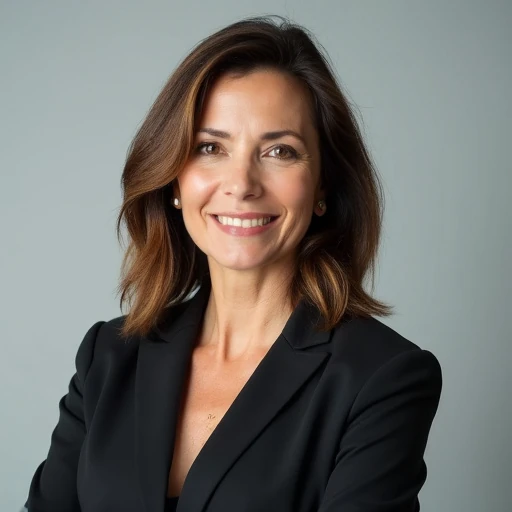Newark Public Schools Superintendent Roger León recently outlined the district's strategy for equity training at a national conference, even as his administration faces ongoing criticism over its handling of racism complaints at a prominent high school. The presentation highlighted a system of leadership teams and external consultants designed to address systemic issues within New Jersey's largest school district.
This public discussion of equity comes months after community advocates demanded the release of a report detailing racial tensions at the Newark School of Global Studies and called for a more inclusive curriculum. The controversy has led to lawsuits and the resignation of a school board member, placing the district's equity efforts under intense scrutiny.
Key Takeaways
- Superintendent Roger León presented Newark's equity strategy at the Council of Great City Schools conference.
- The strategy relies on school-based leadership teams and outside consultants for professional development.
- The district is facing criticism and legal action over allegations of racism at the Newark School of Global Studies.
- Advocates have demanded the release of a report on the school's cultural dynamics, which the district has so far withheld.
- Newark's student population is over 90% Black or Latino, with Hispanic enrollment now surpassing Black enrollment.
León Outlines District's Equity Framework
Speaking to an audience of education leaders in Philadelphia, Superintendent Roger León described Newark's approach to equity as a collaborative effort. He explained that the district has established leadership teams composed of principals, parents, students, and teachers at various schools.
According to León, these teams act as a crucial feedback mechanism. He said they help “funnel” information from the school level directly to his office, allowing him to “have a pulse of what is occurring in the organization.”
“Talk to me, tell me everything that’s wrong,” León recalled telling a group of principals, emphasizing his desire for open communication to identify and address challenges across the district.
The strategy also involves deploying equity resources to staff and bringing in external experts for training.
The Role of External Consultants
Matthew Brewster, the district's director of instructional staff development, joined León at the conference and elaborated on the use of outside help. He stated that the majority of professional development on equity is provided by consultants.
Brewster defended this approach, suggesting that genuine progress requires an external perspective. “Because if you’re going to be a learner, you have to be a learner, right? You have to bring in someone else to help you do the work,” he said.
He added a pointed remark about the nature of this work: “Equity work that you’re not uncomfortable doing, you’re not doing right.”
The district's Office of Staff Development has also provided school leaders with reading lists that include books like “The Equity & Social Justice 50” by Baruti Kafele and “Becoming the Educator They Need” by Robert Jackson.
A District in Transition
Newark Public Schools is the largest school system in New Jersey, serving approximately 41,000 students. The demographic landscape is shifting significantly. While more than 90% of students identify as Black or Latino, Hispanic students recently became the largest student group. Since 2019, the district has seen a steady increase in Hispanic enrollment alongside a decline in the number of Black students.
Shadow of Global Studies Controversy
The superintendent's presentation on equity is set against a backdrop of serious racial issues at the Newark School of Global Studies. In 2022, multiple Black students and teachers came forward with descriptions of ongoing racial harassment, prompting the district to hire an outside consultant to investigate the school's culture.
The consultant produced a report that, according to a draft version, was highly critical of the school's environment and detailed problems with anti-Blackness. However, Superintendent León has been criticized for not releasing the final report to the public.
In September, a coalition of school advocates publicly demanded the report's release. They also pleaded with the district to implement a curriculum that actively challenges racial biases and fosters a more inclusive atmosphere for all students.
Legal and Political Fallout
- Two Lawsuits: Two former teachers have filed a lawsuit against the district, alleging they suffered “severe emotional problems” due to the incidents at the school. This case is still ongoing.
- Board Member Resignation: One of Newark’s longest-serving school board members resigned from her position as part of a settlement with the district. The settlement came after her daughter, a former student at Global Studies who reported facing racial harassment, threatened to sue.
A Call for Transparency and Action
While the district publicly promotes its equity initiatives, parents and community leaders continue to express frustration over what they see as a lack of transparency and decisive action. The decision to withhold the Global Studies report remains a central point of contention, fueling mistrust between the community and the district administration.
Advocates argue that without acknowledging the specific findings of the report, the district's broader equity efforts may fail to address the root causes of the problems. They maintain that true equity requires not only professional development and leadership teams but also a public accounting of past failures and a concrete plan to rectify them.
As the district navigates its demographic shifts and leadership challenges, the community is watching closely to see if the strategies outlined by León and his team will translate into a safer and more equitable learning environment for its thousands of students.





